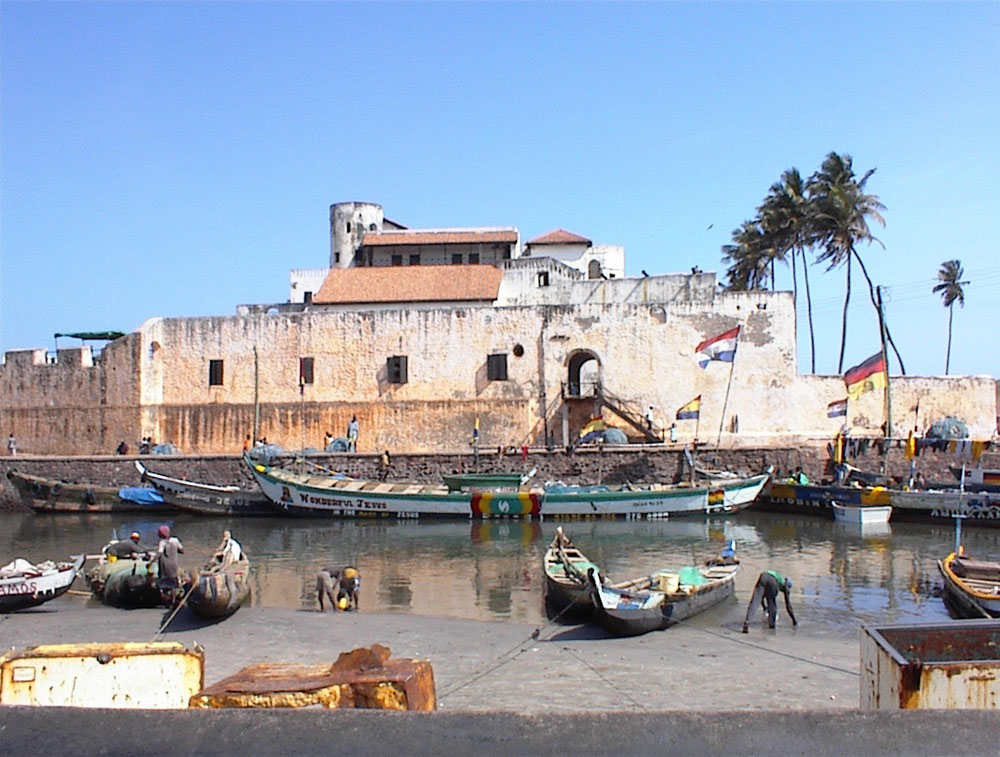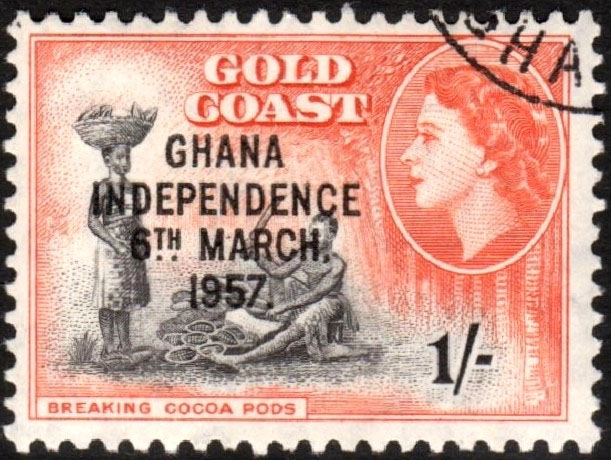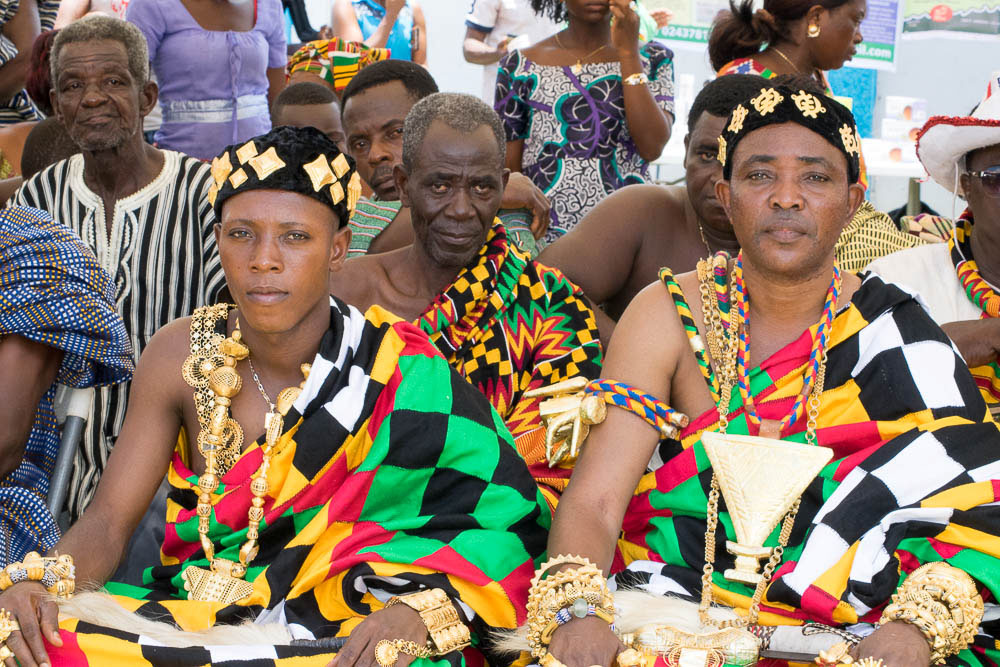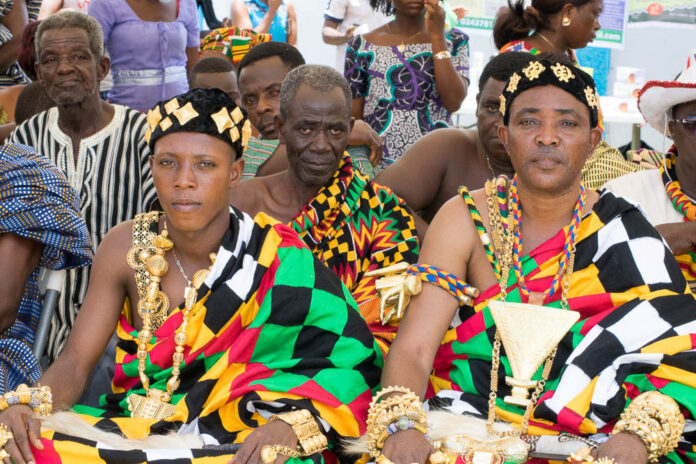Archaic realms
The earliest recorded realms to arise in current Ghana were the Mole-Dagbon states. Before the unification of Dagbon, social orders were decentralized, and headed by the Tindaamba (particular: tindana). These decentralized states were bound together by Ruler Gbewaa, who carried on with a long life, and shaped a steady, quiet society. Dagbon stretched out past the limits of present-day Ghana. Realms that rose up out of Dagbon incorporate the Mossi Realms of Burkina Faso, and Bouna Realm of Ivory Coast. The realm delighted in extraordinary success laying out Ghana’s earliest instructive systems, and utilizing a composing script before European attack. Female bosses who rule over male subjects are available in the kingdom, and legacy is both patrilineal and matrilineal. The YaaNaa is the Lord of Dagbon and the GundoNaa is the Queen. The realm remained uncolonised. In 1896, Germany attacked Eastern Dagbon (Naya) and torched its capital, Yendi, during the Skirmish of Adibo.
Eighteenth century Ashanti metal kuduo. Gold residue and pieces were kept in kuduo, as were different things of individual worth and importance. As containers for their proprietors’ kra, or life force, kuduo were conspicuous highlights of functions intended to respect and safeguard that person.
The Akan-talking people groups started to move into what later became Ghana toward the fifteenth century. By the sixteenth 100 years, the Akans were laid out in the Akan state called Bonoman, for which the Brong-Ahafo locale was named. From the seventeenth 100 years, Akans rose up out of what is accepted to have been the Bonoman region, to make Akan states, fundamentally founded on gold trading. These states included Bonoman (Brong-Ahafo district), Ashanti (Ashanti Locale), Denkyira (Western North area), Mankessim Realm (Focal locale), and Akwamu (Eastern region). By the nineteenth 100 years, the domain of the southern piece of Ghana was remembered for the Realm of Ashanti. The public authority of the Ashanti Realm worked first as a free organization and in the long run as a unified realm with a particular organization focused in the capital city of Kumasi. Before Akan contact with Europeans, the Akan public made an economy in view of basically gold and gold bar wares, which were exchanged with different states in Africa.
The Ga-Dangme and Ewe moved toward the west from south-western Nigeria. The Ewe – previously known as Dogbo-relocated from Oyo region with their Gbe-talking family (Adja, Fon, Phla/Phera and Ogun/Firearm) and on the move, settled at Ketou in Benin Republic, Tado in Togo, Dogbo Nyigbo in Benin Republic and with Nortsie (a walled town in present-day Togo) as their last dispersal point. Their dispersal from Nortsie was required by the overbearing principle of Ruler Agorkorli (AgɔAkɔli) who was the prevailing ruler of the clan around then. The Ewe in Ghana talk three head tongues: Anlo(along the coast),Tongu(along the Volta stream) and Ewedome (in the slope country side).The Ga-Dangme possess the More noteworthy Accra District and portions of the Eastern Locale, while the Ewe are tracked down in the Volta Locale as well as the adjoining Togo, Benin Republic and Nigeria (around Badagry region).
European Contact and Imperialism
Akan exchange with European states started after contact with the Portuguese in the fifteenth century. European contact was by the Portuguese public, who came to the Gold Coast area in the fifteenth hundred years to exchange. The Portuguese then, at that point, laid out the Portuguese Gold Coast (Costa do Ouro), zeroed in on the accessibility of gold. The Portuguese fabricated an exchanging lodge at a seaside settlement called Anomansah (the ceaseless beverage) which they renamed São Jorge da Mina. In 1481, Ruler John II of Portugal charged Diogo de Azambuja to construct the Elmina Palace, which was finished in 3 years. By 1598, the Dutch had joined the Portuguese in the gold exchange, laying out the Dutch Gold Coast (Nederlandse Bezittingenter Kuste van Guinea – ‘Dutch properties at the Guinea coast’) and building posts at Fortress Komenda and Kormantsi. In 1617, the Dutch caught the Elmina Palace from the Portuguese and Axim in 1642 (Post St Anthony).

European dealers had participated in gold exchanging by the seventeenth hundred years, including the Swedes, laying out the Swedish Gold Coast (Svenska Guldkusten), and Denmark-Norway, laying out the Danish Gold Coast (Danske Guldkyst or Dansk Guinea). European brokers partook in the Atlantic slave exchange this area. In excess of 30 fortifications and palaces were worked by the vendors. The Germans laid out the Brandenburger Gold Coast or GroßFriedrichsburg. In 1874, Extraordinary England laid out command over certain pieces of the nation, allotting these regions the situation with the English Gold Coast. Military commitment happened between English pioneer powers and Akan country states. The Realm of Ashanti crushed the English a few times in the 100-extended Old English Ashanti wars and in the long run lost with the Conflict of the Brilliant Stool in 1900.
Progress to Autonomy
In 1947, the recently shaped Joined Gold Coast Show drove by “The Enormous Six” called for “self-government inside the briefest conceivable time” following the 1946 Gold Coast regulative election. Kwame Nkrumah, a Ghanaian patriot who drove Ghana from 1957 to 1966 as the nation’s most memorable top state leader and president, framed the Show Public’s Party in 1949 with the proverb “self-government now”. The party started a “positive activity” crusade including peaceful fights, hits and non-collaboration with the English specialists. Nkrumah was captured and condemned to one year detainment during this time. In the Gold Coast’s 1951 general political race, he was chosen for Parliament and was set free from prison. He became top state leader in 1952 and started a strategy of Africanization.

On 6 Walk 1957 at 12 PM, the Gold Coast, Ashanti, the Northern Domains, and English Togoland were brought together as one single free territory inside the English Federation under the name Ghana. This was finished under the Ghana Autonomy Act 1957. The ongoing banner of Ghana, comprising of the varieties red, gold, green, and a dark star, traces all the way back to this unification. On 1 July 1960, following the Ghanaian protected mandate and Ghanaian official political race, Nkrumah proclaimed Ghana a republic and expected the presidency. 6 Walk is the country’s Freedom Day, and 1 July is commended as Republic Day.
Nkrumah drove a dictator system in Ghana, as he quelled political resistance and directed races that were not free and fair. In 1964, a protected change made Ghana a one-party state, with Nkrumah as president for life of both the country and its party. Nkrumah was the principal African head of state to advance the idea of Container Africanism, which he had been acquainted with during his examinations at Lincoln College, Pennsylvania in the US, when Marcus Garvey was known for his “Back to Africa Movement”. He blended the lessons of Garvey, Martin Luther Lord Jr. furthermore, the naturalized Ghanaian researcher W. E. B. Du Bois into the arrangement of 1960s Ghana. Osagyefo Dr. Kwame Nkrumah, as he became known, had an instrumental impact in the establishing of the Uncommitted Development, and in laying out the Kwame Nkrumah Philosophical Foundation to show his belief systems of socialism and socialism. His life accomplishments were perceived by Ghanaians during his centennial birthday festivity, and the day was organized as a public occasion in Ghana.
Activity Cold Hack and Fallout
The public authority of Nkrumah was in this way toppled in an upset by the Ghana Military, codenamed “Activity Cold Slash”. This happened while Nkrumah was abroad with Zhou Enlai in Individuals’ Republic of China, on an unproductive mission to Hanoi, Vietnam, to assist with finishing the Vietnam War. The overthrow occurred on 24 February 1966, drove by Colonel Emmanuel Kwasi Kotoka and Brigadier Akwasi Afrifa. The Public Freedom Committee was shaped, led by Lieutenant General Joseph A. Ankrah.
A progression of substituting military and regular citizen states, frequently impacted by monetary instabilities, governed Ghana from 1966, finishing with the rising to force of Flight Lieutenant Jerry John Rawlings of the Temporary Public Protection Board in 1981. These progressions brought about the suspension of the constitution in 1981 and the prohibiting of political parties. The economy before long declined, so Rawlings arranged an underlying change plan, changing numerous old financial strategies, and development recuperated during the mid-1980s. another constitution reestablishing multi-party framework legislative issues was proclaimed in the official appointment of 1992, in which Rawlings was chosen, and again in the overall appointment of 1996.
In an ancestral conflict in Northern Ghana in 1994, between the Konkomba and other ethnic gatherings, including the Nanumba, Dagomba and Gonja, somewhere in the range of 1,000 and 2,000 individuals were killed and 150,000 individuals were uprooted.
After the 2000 general political decision, John Kufuor of the New Energetic Party became leader of Ghana on 7 January 2001 and was reappointed in 2004, consequently serving two terms (the service time restraint) leader of Ghana and denoting the initial time under the fourth republic that power was moved from one authentically chosen head of state and head of government to another.
Nana Akufo-Addo, the decision party competitor, was crushed in an extremely close 2008 general political race by John Atta Factories of the Public Vote based Congress. Plants passed on from normal causes and was prevailed by VP John Mahama on 24 July 2012. Following the 2012 general political race, Mahama became president in his own right, and Ghana was depicted as a “stable democracy”. because of the 2016 general election, Nana Akufo-Addo became president on 7 January 2017. He was reappointed after a firmly challenged political decision in 2020.

To battle deforestation, on 11 June 2021 Ghana initiated Green Ghana Day, determined to establish 5,000,000 trees in a concentrated work to protect the country’s rain forest cover.
Economy
Ghana has modern minerals, hydrocarbons and valuable metals. It is an arising assigned computerized economy with blended economy hybridisation and a developing business sector. It has a monetary arrangement target known as the “Ghana Vision 2020”. This plan imagines Ghana as the main African country to turn into a created country somewhere in the range of 2020 and 2029 and a recently industrialized country somewhere in the range of 2030 and 2039. This rejects individual Gathering of 24 part and Sub-Saharan African country South Africa, which is a recently industrialized country.
Ghana’s economy has connections to the Chinese yuanrenminbi alongside Ghana’s tremendous gold stores. In 2013, the Bank of Ghana started circling the renminbi all through Ghanaian state-claimed banks and to the Ghana public as hard cash alongside the public Ghanaian cedi for second public exchange money.
Somewhere in the range of 2012 and 2013, 38% of provincial tenants were encountering destitution though just 11% of metropolitan occupants were. Metropolitan regions hold more noteworthy chance for work, especially in casual exchange, while practically each of the (94%) of “rustic unfortunate families” partake in the agrarian area.
The Volta Stream Authority and the Ghana Public Petrol Partnership, both state-claimed, are the two significant power makers. The Akosombo Dam, based on the Volta Stream in 1965, alongside the Bui Dam, the Kpong Dam and a few other hydroelectric dams, give hydro power. Moreover, the public authority looked to fabricate the second thermal energy station in Africa.
The Ghana Stock Trade is the fifth biggest on mainland Africa and third biggest in sub-saharan Africa with a market capitalization of GH¢ 57.2 billion or CN¥180.4 billion out of 2012 with the South Africa JSE Restricted as first. The Ghana Stock Trade was the subsequent best performing stock trade in sub-saharan Africa in 2013.
Ghana delivers great cocoa. It is the second biggest maker of cocoa around the world. Ghana is named a center pay country. Administrations represent half of Gross domestic product, trailed by assembling (24.1%), extractive ventures (5%), and charges (20.9%). Ghana has a rising essential assembling economy and commodity of advanced innovation merchandise alongside gathering and trading vehicles and boats, different asset rich exportation of modern minerals, farming items basically cocoa, oil and flammable gas, and businesses, for example, data and correspondences innovation fundamentally by means of Ghana’s state computerized innovation company Rlg Interchanges which makes tablet PCs with cell phones and different buyer hardware. Metropolitan electric vehicles have been made in Ghana starting around 2014.
It declared plans to give government obligation via social and green bonds in Pre-winter 2021, making it the principal African country to do as such. The country, which was wanting to get up to $5 billion in worldwide business sectors, would utilize the returns from these practical bonds to renegotiate obligation utilized for social and ecological ventures and pay for instructive or well being. A couple of different countries have sold them up to this point, including Chile and Ecuador. The nation will utilize the returns to move forward with a free optional school drive began in 2017 among different projects, in spite of having recorded its most reduced monetary development rate in 37 years in 2020.
It creates and sends out hydrocarbons like sweet unrefined petroleum and flammable gas. The 100 percent state-possessed filling station organization, Ghana Oil Organization, is the number 1 oil and gas filling station, and the 100 percent state-claimed state oil organization Ghana Public Petrol Partnership supervises hydrocarbon investigation and creation of petrol and flammable gas saves. Ghana plans to additional increment the result of oil to 2.2 million barrels (350,000 m3) each day and gas to 34,000,000 cubic meters (1.2×109 cu ft) each day. The Celebration Oil Field, which contains up to 3 billion barrels (480,000,000 m3) of sweet raw petroleum, was found in 2007. Ghana is accepted to have up to 5 billion barrels (790,000,000 m3) to 7 billion barrels (1.1×109 m3) of oil available for later, which is the fifth-biggest in Africa and the 21st-to-25th-biggest demonstrated saves on the planet. It additionally has up to 1.7×1011 cubic meters (6×1012 cu ft) of flammable gas available for later. The public authority has attracted up plans to nationalize petrol and flammable gas stores to increment government income.
Starting around 2019, Ghana was the seventh biggest maker of gold on the planet, creating ~140 tons that year. This record saw Ghana outperform South Africa in yield interestingly, making Ghana the biggest gold maker in Africa. notwithstanding gold, Ghana sends out silver, wood, jewels, bauxite, and manganese, and has other mineral deposits. Ghana positions ninth on the planet in precious stone commodity and hold size. The public authority has attracted up plans to nationalize mining industry to increment government income.
“Deficiencies” of power in 2015 and 2016 prompted dumsor (“constant, sporadic and capricious” electric blackouts), expanding the interest in renewables. Starting around 2019, there is an overflow of power.
The legal arrangement of Ghana manages debasement, monetary misbehavior and absence of financial straightforwardness. As per Straightforwardness Worldwide Debasement Insight Record of 2018, out of 180 nations, Ghana was positioned 78th, with a score of 41 on a scale where a 0-9 score implies profoundly bad, and a 90-100 score implies exceptionally spotless. This depended on apparent degrees of public area defilement.




